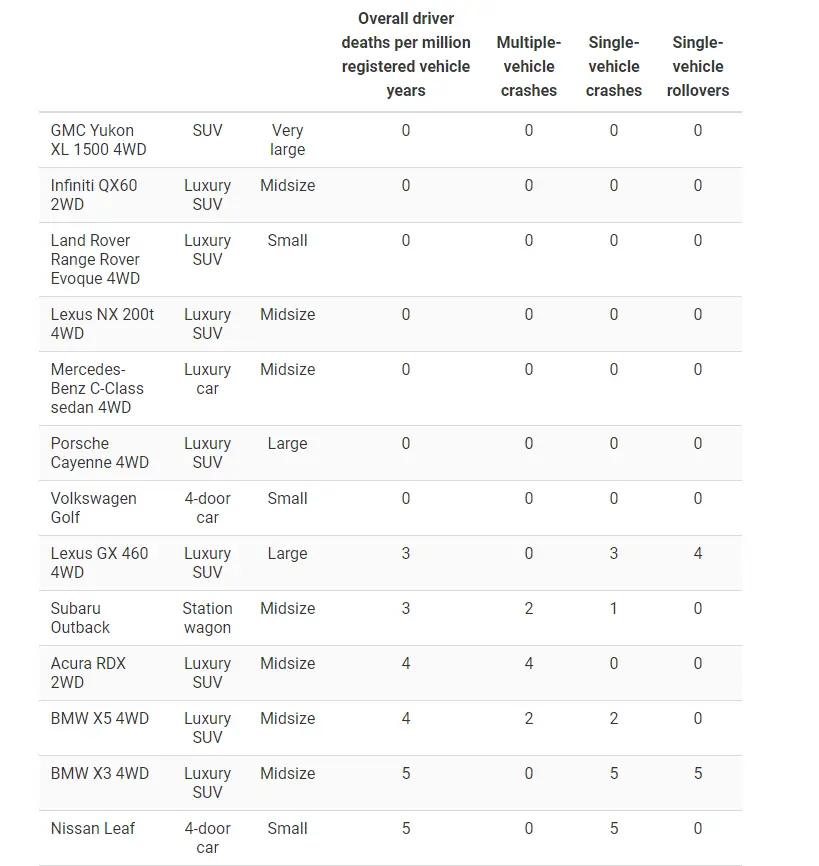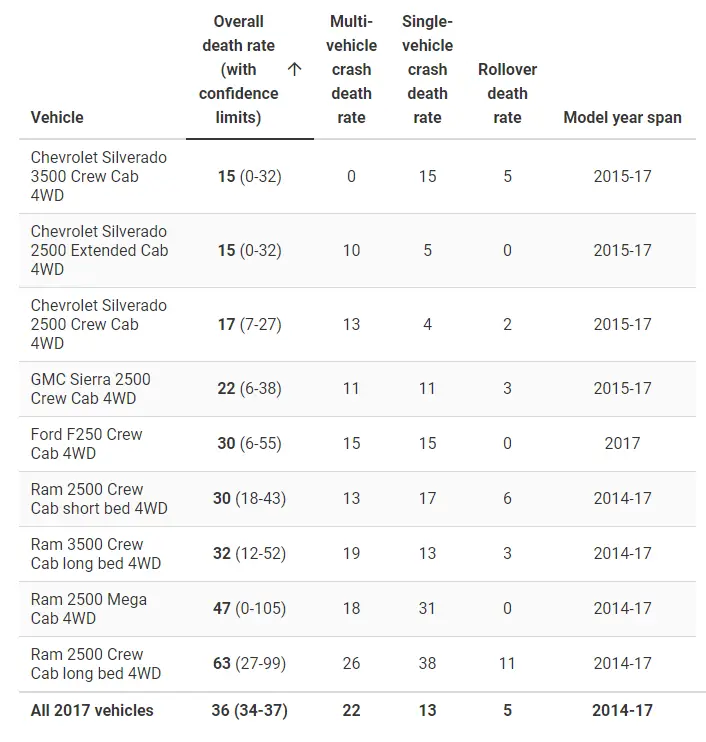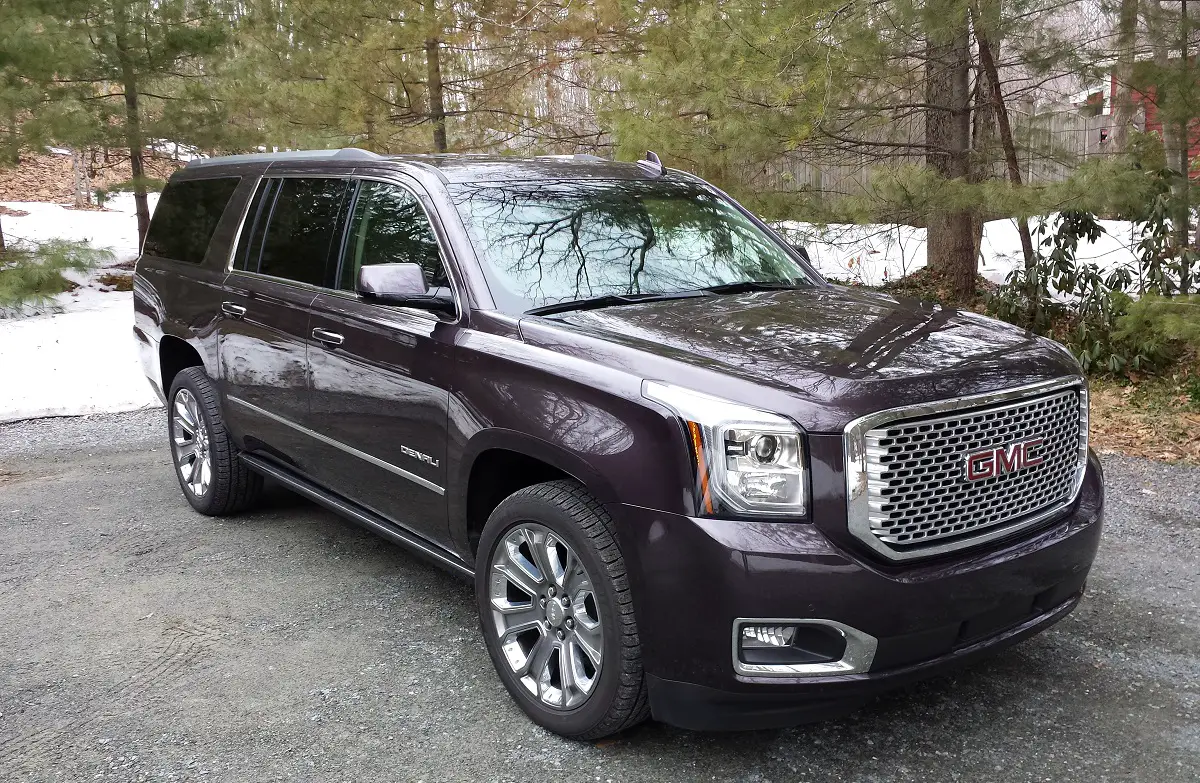The 2015-2017 GMC Yukon tops the list of safest vehicles in a new IIHS study.
This latest safety study is one that the Insurance Institute of Highway Safety conducts in partnership with the Highway Data Loss Institute every three years. Unlike laboratory crash tests, this one looks only at real-world driver death reports. Pretty grim stuff, but the real-world driver death rates are meaningful.
The study measures the driver death rate by make and model. It looked at model years 2015-2017. The older models provide the needed time on the road for the data to be produced.
In the study, SUVs with 4-wheel drive prove to the safest type of vehicle. Very large SUVs have the lowest overall death rate of any vehicle category with just 15 fatalities per million registered vehicle years. Minicars have the highest at 82. That is no big surprise to anyone who has studied physics (or heard of physics). In a crash with two or more vehicles involved, the bigger vehicle is usually the one to be in. In single-vehicle crashes, the bigger the vehicle the slower the deceleration rates in many cases. The Yukon XL is a big son of a gun and that is to its advantage.
“Smaller vehicles offer less protection for the driver in crashes, and their lighter mass means that they take the brunt of collisions with larger vehicles,” says Joe Nolan, IIHS senior vice president of vehicle research.

You can read the study conclusions here and also view the list of safest vehicles by make and model. Our scan of the list found the Cadillac Escalade is also among the safest vehicles overall. Among Pickup trucks, the GM lines dominate, taking the top-four spots.

Sharp-eyed readers may note that there are two outliers on this list of the safest vehicles. Much to the surprise of IIHS, the Nissan Leaf and VW Golf both stole spots on the list of overall safest cars. Maybe physics isn’t the only factor after all?
Image of 2015 Yukon Denali by John Goreham.

